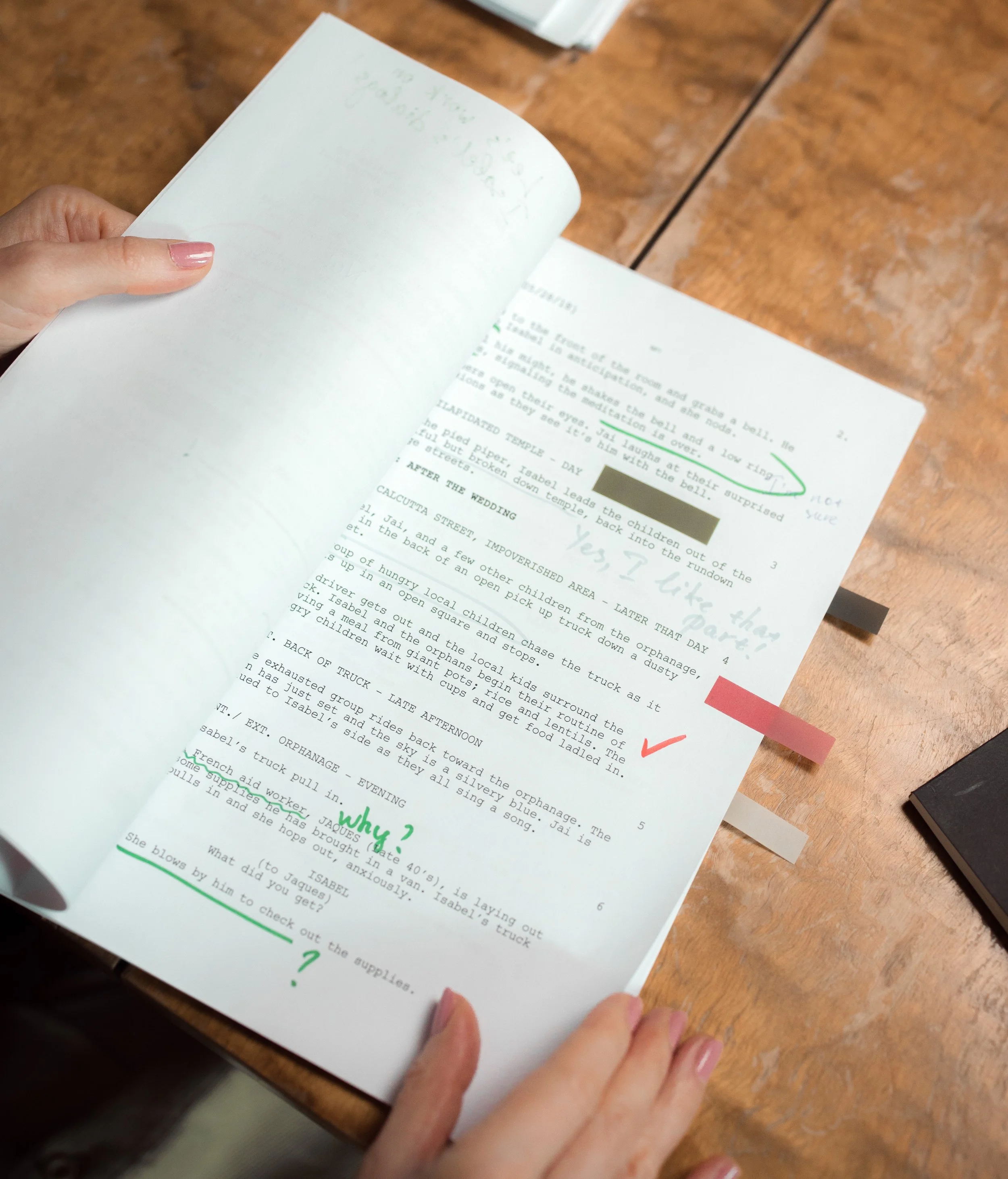Writing Motivation: Getting Started
So— you’re here because you’ve been sitting on an idea for a while, but you haven't quite gotten around to starting it. This could be due to a variety of reasons. The two main things that prevent me from starting a new project are my own insecurities and a fear of the unknown. I get in my head about what I'm actually capable of and doubt my ability to successfully finish something. Writing takes a lot out of you mentally, emotionally and physically, sometimes making it hard to find the motivation to dive in. I get that.
Photo by Ron Zach on Pexels
To help you feel more confident and motivated, here are five things to remember as you start your script. They won't eliminate the challenges that come with writing, but hopefully they can ease your mind a bit. Consider this your getting-started-pep-talk that you can return to whenever you need it.
1. Start small
You don’t have to sit down for hours on end to make progress. Sometimes it’s literally not possible to do that, with work and other adult responsibilities that demand our time and energy. It’s okay to start in small increments of time to help warm up your writing muscles. The process doesn’t need to be torturous. Eventually, you can work your way up to longer writing sessions without overwhelming yourself. Build up your writing stamina!
2. Even if it sounds clunky, write it down
It’s not always about finding the “right” words— write down any initial thoughts that come to your mind. It can always be edited later. Seeing your thoughts on a page will help you get a better sense of what direction you want to take your story in. It helps to keep a notebook handy for spontaneous moments of inspiration. I have several notebooks filled with brief phrases that I thought of in the middle of the night. Yes, some of these notes turn out to be nonsense, but others can be useful.
3. Writer’s block doesn’t last forever
When I begin working on a story, I never have all the necessary pieces. I have a rough beginning and end in mind, but no clear idea of how they will connect. The thought of hitting a roadblock often puts me off of getting started at all. While starting with an outline helps prevent you from going off the rails, you'll still encounter moments of stagnation. Sometimes we get too close to our own writing, we struggle to see it from a different perspective. When this happens, take a break from it. Even if you write yourself into a corner, you can write yourself out. The pieces will eventually come together.
4. Different things work for different people
Some people work better by writing their first thoughts on paper while others prefer to start typing on a computer. It helps to alternate between the two to avoid burnout. Be open to experimenting. Try writing at different times of the day to see what time you feel the most focused at. I feel most creative at night, but that may not be the same for you. Maybe try working in different spots— indoors in a cozy spot or outdoors in the fresh air. Find out what works best for you.
5. Don't put too much pressure on yourself
You are writing this script because it is something you are passionate about. The first draft is not going to come out perfect, so don't beat yourself up. The more I overthink it, the more restrained I feel. Though it may sometimes feel like it, writing is never a waste of time. You have the story in you, it will just take some patience as you dig it out.


